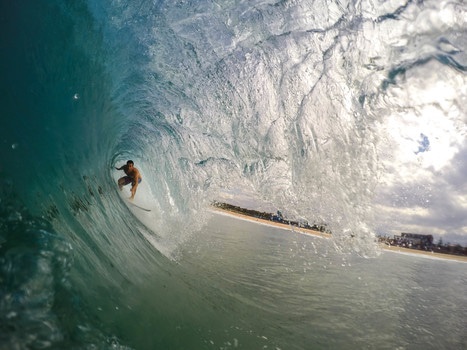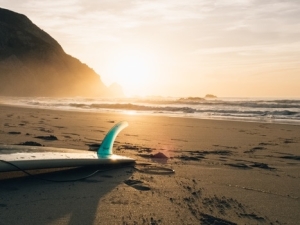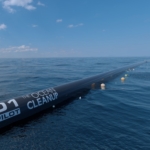Surfers united: Catching the big waste wave

The numbers are alarming, but awareness is probably to everyone’s advantage, and will put the ocean waste image into a perspective. According to Beachapedia — a database on coastal environmental information — at least 5.25 trillion plastic particles weighing 268,940 tons are currently floating at sea. But this fact doesn’t mean that there’s nothing to be done, and surf companies are now more than ever taking action to manage ocean waste.
In a photo reportage, Tess Riley from The Guardian, profiles surf companies that find solutions to reduce ocean waste and inspire further stimulus. Here, we have put their efforts together with confidence that this is only the beginning towards cleaner and healthier oceans.
The American athlete Thomas Edward Blake revolutionised board designing between the 1920s-1930s by building the first hollow wooden surfboard, and adapted the hundred-year-old Polynesian technique of surfing into a popular sport. Surfers are taken back to their roots with the production of wood-made surfboards, as opposed to the petrochemical derived mass surfboards. Otter surfboard makers, recycle the wood offcuts, and the sawdust is turned into briquettes that are sold for communal use in log burners.
Sometimes ideas to save the sea come from the shore. Rareform has established that 12′ x 48′ ft of durable vinyl material is rather treasurable to go to waste. Thus, they collect, wash and hand-cut vinyl billboards into unique surf backpacks, wallets, board bags and duffles.
Swimwear is a surfer’s second skin, so it would better be a positive presence in the sea, and have a good environmental impact. Patagonia has launched yulex rubber-made swimwear that is neoprene-free and uses bio-rubber from the bark of the Guayule plant. Other eco-friendly swimsuits like the sustainable RubyMoon use ECONYL nylon yarn from dumped fishing nets and other waste materials that would eventually enter our food chain.
 Other surf essentials, such as handplanes and surfboard fins — although they are seemingly small items — can leave a positive imprint too in the path of limiting industrial waste and plastics and producing less emissions. For example, Enjoy Handplanes uses foam and blanks from old boards and neoprene from well-worn wetsuits to make the handles. The materials that would definitely end up in the landfill are turned into fully recyclable products.
Other surf essentials, such as handplanes and surfboard fins — although they are seemingly small items — can leave a positive imprint too in the path of limiting industrial waste and plastics and producing less emissions. For example, Enjoy Handplanes uses foam and blanks from old boards and neoprene from well-worn wetsuits to make the handles. The materials that would definitely end up in the landfill are turned into fully recyclable products.
With the convenience of modern life came too must wasteful non-biodegradable plastic and other pollutants that are getting into the sea, are harming marine life and — for the vicious circle to close — are harming us.





